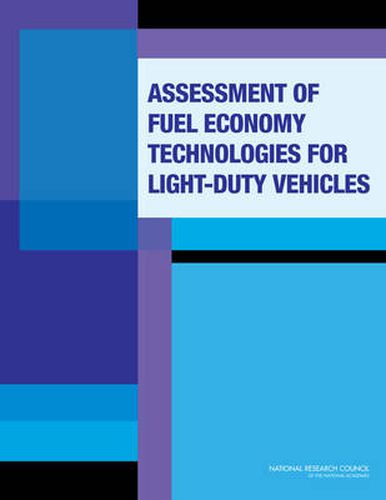Readings Newsletter
Become a Readings Member to make your shopping experience even easier.
Sign in or sign up for free!
You’re not far away from qualifying for FREE standard shipping within Australia
You’ve qualified for FREE standard shipping within Australia
The cart is loading…






Various combinations of commercially available technologies could greatly reduce fuel consumption in passenger cars, sport-utility vehicles, minivans, and other light-duty vehicles without compromising vehicle performance or safety. Assessment of Technologies for Improving Light Duty Vehicle Fuel Economy estimates the potential fuel savings and costs to consumers of available technology combinations for three types of engines: spark-ignition gasoline, compression-ignition diesel, and hybrid. According to its estimates, adopting the full combination of improved technologies in medium and large cars and pickup trucks with spark-ignition engines could reduce fuel consumption by 29 percent at an additional cost of $2,200 to the consumer. Replacing spark-ignition engines with diesel engines and components would yield fuel savings of about 37 percent at an added cost of approximately $5,900 per vehicle, and replacing spark-ignition engines with hybrid engines and components would reduce fuel consumption by 43 percent at an increase of $6,000 per vehicle. The book focuses on fuel consumption–the amount of fuel consumed in a given driving distance–because energy savings are directly related to the amount of fuel used. In contrast, fuel economy measures how far a vehicle will travel with a gallon of fuel. Because fuel consumption data indicate money saved on fuel purchases and reductions in carbon dioxide emissions, the book finds that vehicle stickers should provide consumers with fuel consumption data in addition to fuel economy information.
$9.00 standard shipping within Australia
FREE standard shipping within Australia for orders over $100.00
Express & International shipping calculated at checkout
Various combinations of commercially available technologies could greatly reduce fuel consumption in passenger cars, sport-utility vehicles, minivans, and other light-duty vehicles without compromising vehicle performance or safety. Assessment of Technologies for Improving Light Duty Vehicle Fuel Economy estimates the potential fuel savings and costs to consumers of available technology combinations for three types of engines: spark-ignition gasoline, compression-ignition diesel, and hybrid. According to its estimates, adopting the full combination of improved technologies in medium and large cars and pickup trucks with spark-ignition engines could reduce fuel consumption by 29 percent at an additional cost of $2,200 to the consumer. Replacing spark-ignition engines with diesel engines and components would yield fuel savings of about 37 percent at an added cost of approximately $5,900 per vehicle, and replacing spark-ignition engines with hybrid engines and components would reduce fuel consumption by 43 percent at an increase of $6,000 per vehicle. The book focuses on fuel consumption–the amount of fuel consumed in a given driving distance–because energy savings are directly related to the amount of fuel used. In contrast, fuel economy measures how far a vehicle will travel with a gallon of fuel. Because fuel consumption data indicate money saved on fuel purchases and reductions in carbon dioxide emissions, the book finds that vehicle stickers should provide consumers with fuel consumption data in addition to fuel economy information.